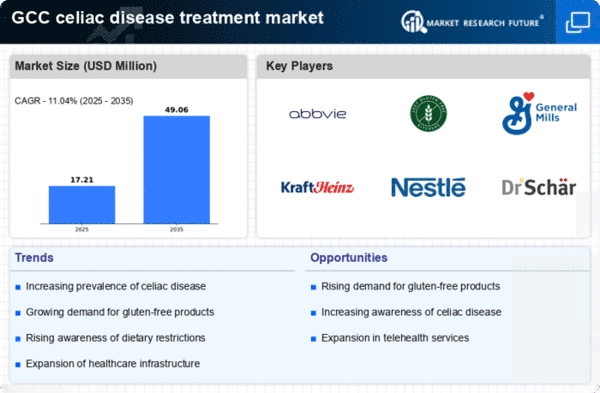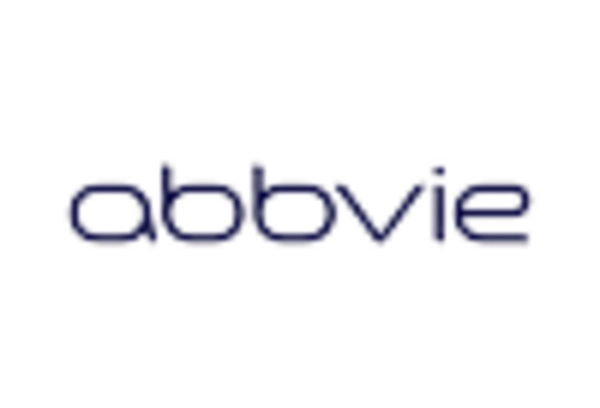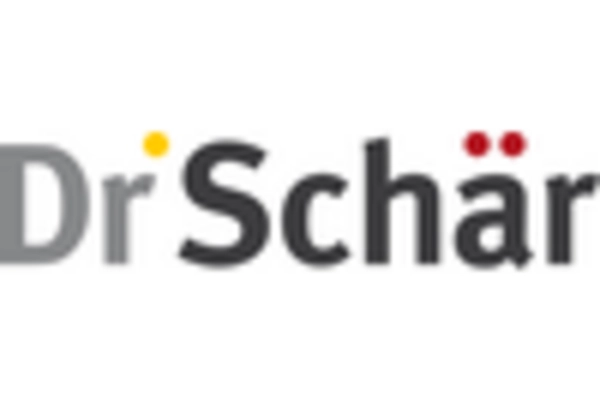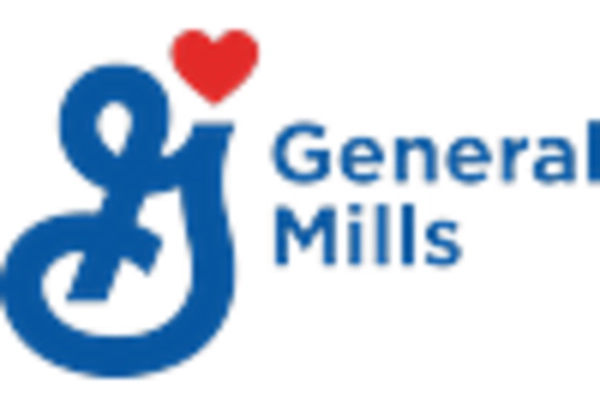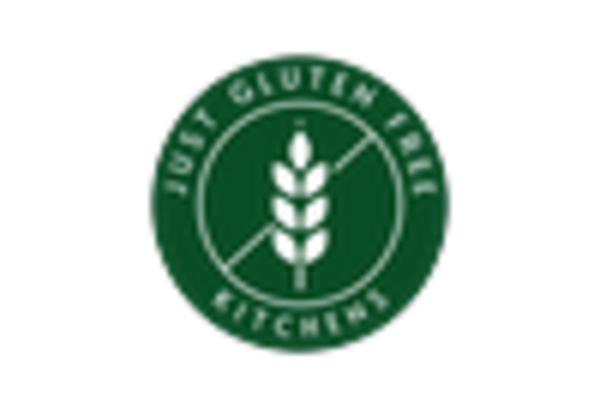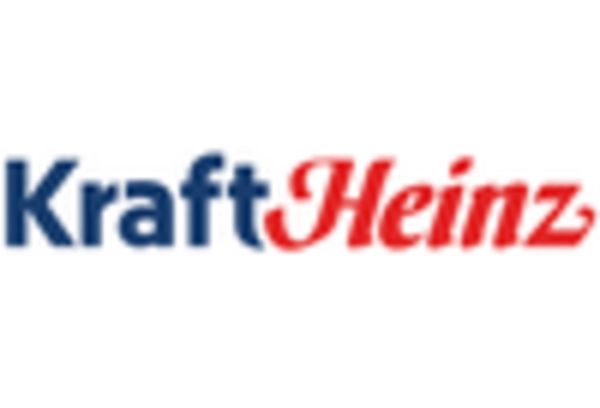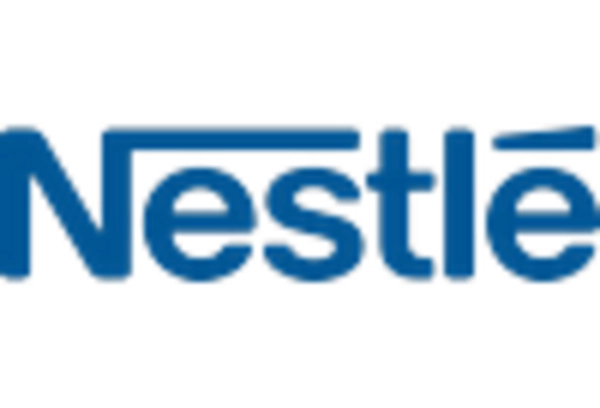Increased Healthcare Expenditure
Rising healthcare expenditure in the GCC region is likely to bolster the celiac disease-treatment market. Governments and private sectors are investing more in healthcare infrastructure, which includes the diagnosis and treatment of chronic conditions like celiac disease. This increase in funding may lead to improved access to healthcare services, including specialized treatments and dietary consultations for patients. As healthcare systems evolve and expand, the celiac disease-treatment market could experience enhanced growth opportunities, as more patients gain access to necessary treatments and support services. This trend indicates a positive outlook for the market as healthcare investments continue to rise.
Support from Patient Advocacy Groups
The role of patient advocacy groups in raising awareness about celiac disease is a vital driver for the celiac disease-treatment market. These organizations are actively engaged in educating the public and healthcare professionals about the condition, promoting early diagnosis and effective management strategies. Their efforts contribute to a more informed patient population, which may lead to increased demand for treatment options. In the GCC, the presence of such advocacy groups is growing, and their initiatives are likely to influence healthcare policies and practices. As awareness spreads, the celiac disease-treatment market may benefit from a larger patient base seeking effective solutions for managing their condition.
Advancements in Diagnostic Technologies
Technological innovations in diagnostic methods are significantly impacting the celiac disease-treatment market. Enhanced testing techniques, such as genetic testing and advanced serological assays, are becoming more accessible in the GCC. These advancements facilitate earlier and more accurate diagnoses, which is essential for effective management of celiac disease. As diagnostic capabilities improve, healthcare providers are likely to identify more cases, leading to an increase in the demand for treatment options. The market may see a surge in the adoption of gluten-free products and therapeutic interventions as a direct result of these advancements, thereby driving growth in the celiac disease-treatment market.
Growing Demand for Gluten-Free Products
The increasing consumer demand for gluten-free products is a significant driver for the celiac disease-treatment market. In the GCC, the gluten-free food sector has experienced substantial growth, with market analysts projecting a compound annual growth rate (CAGR) of around 10% over the next few years. This trend is largely fueled by heightened awareness of celiac disease and gluten sensitivity among the population. As more consumers seek gluten-free options, manufacturers are expanding their product lines to cater to this demand. This expansion not only benefits individuals with celiac disease but also supports the overall growth of the celiac disease-treatment market, as it encourages the development of new and innovative treatment solutions.
Increasing Prevalence of Celiac Disease
The rising incidence of celiac disease in the GCC region is a crucial driver for the celiac disease-treatment market. Recent studies indicate that the prevalence of celiac disease in the GCC has increased, with estimates suggesting that approximately 1 in 100 individuals may be affected. This growing awareness among healthcare professionals and the public is likely to lead to more diagnoses, thereby expanding the patient population requiring treatment. As more individuals are identified, the demand for effective treatment options, including gluten-free diets and medical therapies, is expected to rise. Consequently, this trend may stimulate growth in the celiac disease-treatment market, as healthcare providers seek to address the needs of an expanding patient base.


